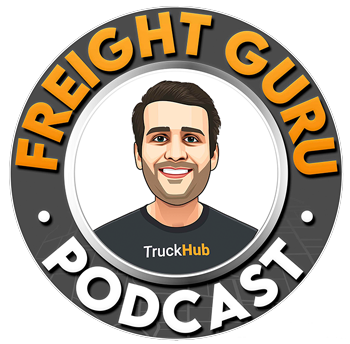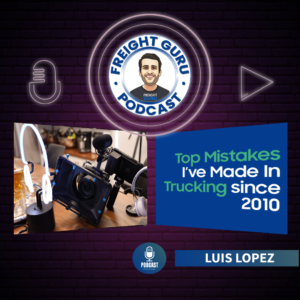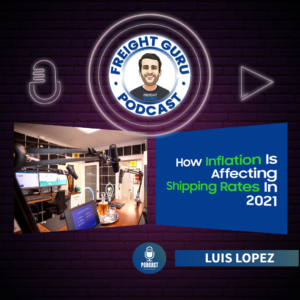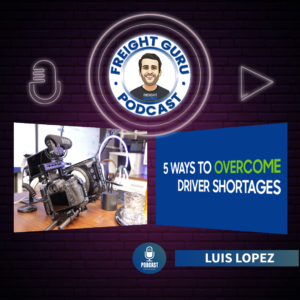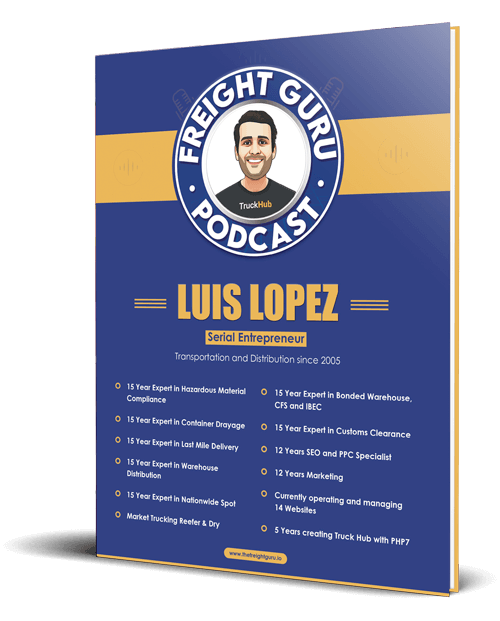How to Start a Trucking Company in Florida
There are two main types of trucking companies one can start. You can be an owner-operator or a fleer owner/manager. Here we are going to focus on being a fleet manager with regards to over-the-road transport.
There are many different ways to go about managing a fleet for domestic transport. You can focus on the last or first mile, drayage, 300-500mi radius within a state, or even a nationwide shipping operation. Below is how to start a trucking company in Florida
Incorporation
Starting with a business plan is strongly recommended and vital to your success. Once you have a plan, the next step is to establish your business. In Florida, we use Sunbiz.org to incorporate.
You will also have to file for an EIN from the IRS which can be done online. You also need to obtain the necessary licenses for your business, for example, occupational licenses, worker’s compensation, and unemployment insurance.
Once you have a company, you should go onto the DOT website and start your registration. You will need to provide the necessary information, and approval will take 30-40 days.
Insurance
The most challenging thing you will face as a new player in the industry will be getting insurance. You will likely have to pay 2-2.5x what an established fleet owner pays. One of the companies we recommend for getting started is Progressive®.
The rates will be high, but you are almost guaranteed to be approved. We also recommend asking other players in your state for good insurance brokers. It is vital to have an insurance agent that can do Motor Vehicle Registrations (MRVs).
Once you have insurance, you should try to get on the road ASAP. That is because you want to get on load boards and start building triangles so you can start earning money.
DOT Certification
Once you submit your application to the DOT, they will give you a reference number to call. That will allow you to check the status of your application. You will also need to file a BOC-3, which designates process agents for every state. It usually costs $20-$45 to fill out, and the DOT has a list of companies on their website.
The total cost of starting your company on paper is going to be under $1k. However, insurance for just one truck is going to set you back at least $18k-$26k. You will also have to spend money advertising and recruiting drivers.
To Buy or To Lease
You need to decide as a company whether to buy or lease your trucks. There are two notable leasers, Ryder and Penske. We have good relationships with both. They both maintain their trucks very well and can be trusted. If you own your trucks, you will have to manage maintenance.
We lease our equipment and recommend you do the same. The counterargument is that if you own your trucks, you can flip them for a profit. Our opinion is that this may be spreading yourself too thin, especially early on.
While you are running 1-5 trucks, it will be like a year of college. You have to learn about the trucking industry quickly.
These are things like dealing with drivers, road conditions, shippers, consignees, late shipments, etc. You ought to have all of your focus on this. Not on establishing a side business selling used trucks.
Compliance! Compliance! Compliance!
The most challenging part of running your trucking company is ensuring proper compliance at all times. It should always be your primary focus.
If you do not meet the requirements around ELD, vehicle maintenance, driver onboarding, and driver qualifications, you will be out of business within a year.
The DOT will not allow a carrier that causes havoc on the road to exist. You could be the most excellent salesman on the face of the earth, have the best clients and drivers, and you will still fail without a focus on compliance.
You ought to speak to your compliance people daily. If you outsource, you should talk to them frequently. That will help you learn about the rules and regulations, which are always changing.
How about DAT
Once you have insurance and DOT certifications, you will need to start finding loads to move. DAT is the industry leader in load boards. You will eventually want to move to contracted loads.
However, when you are starting up, you will be dealing with the spot market. It is best to familiarize yourself with DAT and learn how to procure loads from reliable brokers. We also strongly recommend QuickBooks® as it is integrated well with many 3rd party CRMs and the like.
You also have to understand that you will not get paid on the day the load gets booked. A standard time until payment is 30-40days. You should most likely have a CPA, but you will have to manage the day to day with invoices and the like.
You can expect weekly revenues from a truck to be around $6k-$8k a week, assuming 3,000mi covered. That number will change with conditions such as snowstorms.
Back to Compliance
We recommend that when you start, you should outsource compliance. That is because you will get someone biased against you, who has a vested interest in finding issues. They should manage driver onboarding as well as quarterly and random drug testing. Once you grow to 10-20 trucks, it will make sense to start doing compliance internally.
These are the keys to your success. If you follow these outlines, you will have a solid footing to grow your business and educate yourself and those working for you. Some key takeaways should be the following: First, the most difficult and most expensive part is getting insurance. Second, DOT certification is relatively straightforward.
Lastly, having a business plan will make both of the previous things more simple and more cost-effective.
Thank you for reading, and make sure to check out the full podcast available on our website!
The Freight Guru
ll@thefreightguru.io
Listen to the Podcast:
Spotify: https://open.spotify.com/show/4LoT2sXyJfMBgQ3rpdj4Bi
https://www.buzzsprout.com/258395/8059974
Download the PDF about “How to start a trucking business without driving”:
https://thefreightguru.io/wp-content/uploads/2021/03/How-to-Start-a-Trucking-Business-without-Driving-.pdf
